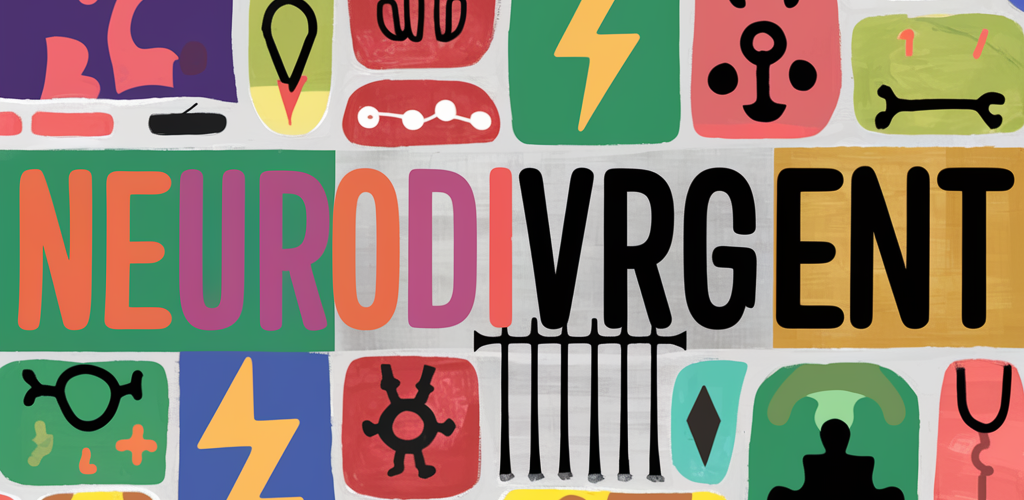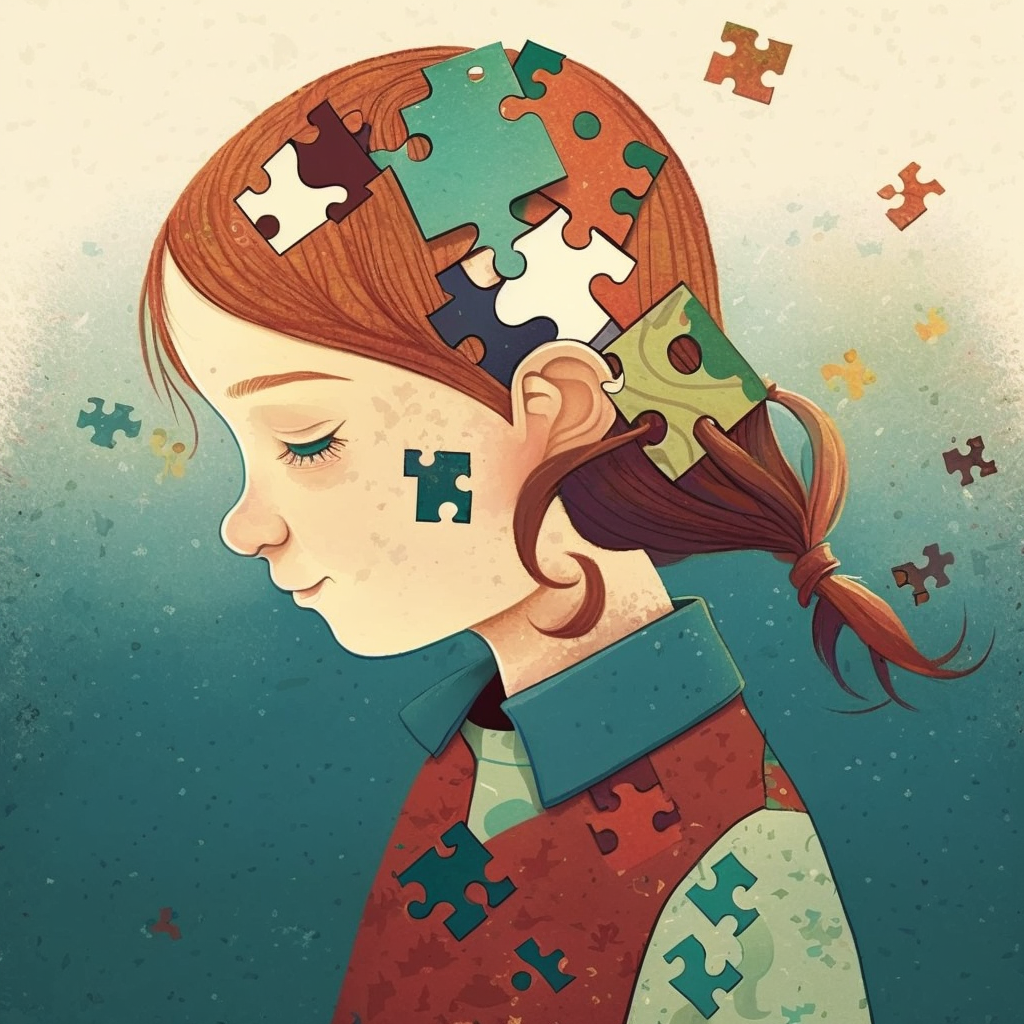Neurodivergent: Understanding the Spectrum of Cognitive Differences

- What Does Neurodivergent Mean?
- The Neurodiversity Paradigm
- Types of Neurodivergence
- Strengths and Challenges of Neurodivergence
- Embracing Neurodiversity
- Frequently Asked Questions About Neurodivergence
- What Does Neurodivergent Mean?
- What’s the Difference Between Neurodivergent and Neurotypical?
- Is Neurodivergence a Disability?
- Can Someone Be Neurodivergent Without a Specific Diagnosis?
- Are All Neurodivergent Individuals Gifted or Talented?
- Is Neurodivergence a New Concept?
- Can Someone Be Both Neurodivergent and Neurotypical?
- How Can I Support Neurodivergent Individuals?
- Can Neurodivergence Be “Cured” or “Fixed”?
- Can Neurodivergent People Live Independently?
- Why is Understanding Neurodivergence Important?
- Conclusion: Celebrating Cognitive Diversity
- Resources
What Does Neurodivergent Mean?
Neurodivergent is a term used to describe individuals whose brain functions differently from what is considered “typical” or “neurotypical.” It includes many neurological conditions. These include autism spectrum disorder (ASD), attention deficit hyperactivity disorder (ADHD), dyslexia, and dyscalculia, among others.
The term “neurodivergent” was coined to challenge the idea. It opposes the notion that there is a single “normal” or “correct” way for the brain to function. Instead, it recognizes that cognitive diversity is a natural part of human variation. Neurodivergent individuals have unique strengths, challenges, and ways of perceiving and interacting with the world.
The Neurodiversity Paradigm
The neurodiversity paradigm is a philosophical and scientific perspective. It views neurodivergence as a natural variation in human neurocognitive functioning. It does not see it as a disorder or deficit. It challenges the medical model. This model often portrays neurodivergent conditions as “abnormalities” or “disorders.” These conditions are seen as things that need to be “cured” or “fixed.”
The neurodiversity paradigm advocates recognizing and celebrating the diversity of human minds and creating inclusive environments.
Types of Neurodivergence
Neurodivergence encompasses various conditions and traits, each with unique characteristics and challenges. Here are some of the most common types of neurodivergence:
1. Autism Spectrum Disorder (ASD)
2. Attention Deficit Hyperactivity Disorder (ADHD)
3. Dyslexia
4. Dyscalculia
5. Tourette Syndrome
6. Intellectual Disability
7. Sensory Processing Disorder
It’s important to note that neurodivergent individuals often have co-occurring conditions or overlap between different types of neurodivergence.
Strengths and Challenges of Neurodivergence
Neurodivergent individuals often possess unique strengths and abilities that can be valuable assets in various settings. For example, individuals with ASD may excel in attention to detail, pattern recognition, and logical thinking. Those with ADHD may thrive in environments that allow for creativity, multitasking, and spontaneity.
However, neurodivergent individuals may also face communication, social interaction, sensory processing, and executive functioning challenges. These challenges can lead to difficulties navigating social situations, completing tasks, or managing daily routines.
Embracing Neurodiversity
As our understanding of neurodiversity continues to evolve, there is a growing movement to embrace and celebrate cognitive differences. This includes advocating for more inclusive and accommodating educational environments, workplaces, and social spaces.
Some strategies for embracing neurodiversity include:
1. Providing accommodations and support services
2. Offering specialized training and resources
3. Promoting awareness and understanding
4. Encouraging self-advocacy and empowerment
Frequently Asked Questions About Neurodivergence
What Does Neurodivergent Mean?
Neurodivergent refers to individuals whose brains function differently from the societal norm, including conditions such as autism, ADHD, dyslexia, and more.
What’s the Difference Between Neurodivergent and Neurotypical?
Neurodivergent refers to individuals whose brain functions differ from “neurotypical,” the term for individuals whose cognitive functioning is considered typical or standard.
Is Neurodivergence a Disability?
Neurodivergence itself isn’t a disability, but related conditions like autism or ADHD can involve impairments considered disabilities in certain contexts.
Can Someone Be Neurodivergent Without a Specific Diagnosis?
Yes, the term neurodivergent includes individuals whose cognitive traits differ from societal norms, even without a formal diagnosis.
Are All Neurodivergent Individuals Gifted or Talented?
Not necessarily. Neurodivergent individuals, like neurotypical individuals, have diverse strengths, talents, and challenges.
Is Neurodivergence a New Concept?
“Neurodivergent” is relatively new, though recognizing cognitive diversity has a long history. Embracing neurodiversity as natural variation is recent.
Can Someone Be Both Neurodivergent and Neurotypical?
No, these terms are mutually exclusive. Individuals are either neurodivergent or neurotypical.
How Can I Support Neurodivergent Individuals?
Support neurodivergent individuals by promoting understanding, inclusivity, appropriate accommodations, and celebrating cognitive diversity.
Can Neurodivergence Be “Cured” or “Fixed”?
No, neurodivergence isn’t an illness or disorder. The neurodiversity paradigm promotes embracing cognitive differences as natural rather than conditions needing a cure.
Can Neurodivergent People Live Independently?
Yes, many neurodivergent people live independently, though some may require support tailored to their specific needs.
Why is Understanding Neurodivergence Important?
Understanding neurodivergence fosters inclusion, reduces stigma, and creates environments where neurodivergent individuals thrive.
Conclusion: Celebrating Cognitive Diversity
The term “neurodivergent” represents a shift in how we perceive and understand cognitive differences. It challenges the idea of a single “normal” way of thinking and encourages us to embrace the rich diversity of human neurocognitive functioning.
As our understanding of neurodiversity grows, it is essential to promote acceptance, learning, and inclusivity for neurodivergent individuals. By creating environments that celebrate and accommodate cognitive diversity, we can unlock the full potential of all individuals and build a more equitable and inclusive society.
Resources
Books:
- “NeuroTribes: The Legacy of Autism and the Future of Neurodiversity” by Steve Silberman
- “Neurodiversity: A Humorous and Practical Guide to Living with ADHD, Anxiety, Autism, Dyslexia, and More” by Jayna Kendall and Cathy Cullen
- “The Neurodiversity Handbook: Strategies and Resources for Embracing Neurological Differences” by Nick Walker
Organizations and Websites:
- The Neurodiversity Hub (neurodiversityhub.org)
- Autistic Self Advocacy Network (autisticadvocacy.org)
- ADHD Coaches Organization (adhdcoaches.org)
- International Dyslexia Association (dyslexiaida.org)
- The Neurodiversity Project (neurodiversityproject.org)
Online Communities and Forums:
- Reddit’s r/Neurodiversity subreddit
- Neurodiversity Employment (neurodiversityemployment.com)
- Neurodiversity in the Workplace (neurodiversityintheworkplace.com)
- Neurodivergent Rebel (neurodivergentrebel.com)
Podcasts:
- “The Neurodiversity Podcast” by Neurodiversity Hub
- “Neurodiversity United” by Neurodiversity United
- “Autism in Life” by Autism in Life
Educational Resources:
- “Neurodiversity in the Classroom” by Thomas Armstrong
- “Neurodiversity in Higher Education” by David Pollak
- Online courses and webinars from organizations like ASAN (Autistic Self Advocacy Network) and CHADD (Children and Adults with Attention-Deficit/Hyperactivity Disorder)
Research and Academic Resources:
- “Journal of Autism and Developmental Disorders”
- “Disability Studies Quarterly”
- Research articles and publications from academic
Discover more from Living with Autism
Subscribe to get the latest posts sent to your email.



1 Response
[…] understanding and using social […]